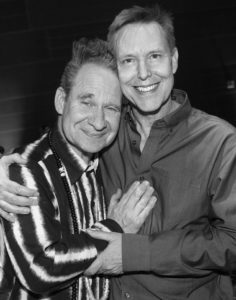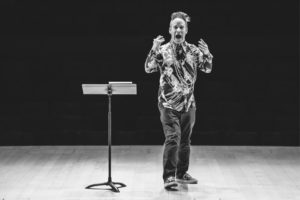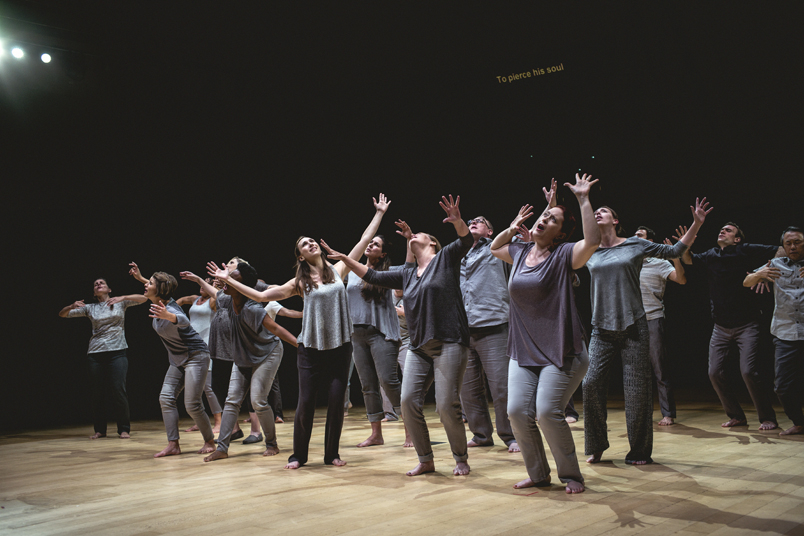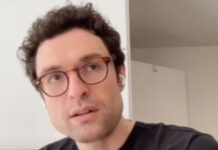“It’s insanely hard. It’s just really really hard.” After having said that about Orlando di Lasso’s Lagrime di San Pietro, director Peter Sellars lets out a robust laugh. “It’s hard for the performers and it’s a pleasure for the audience once you are into it. It’s making demands of everyone. And those demands are quite intense.”

One year after he first directed the Los Angeles Master Chorale’s production of Lagrime di San Pietro, Sellars and the Chorale have teamed up to revisit the work in advance of a national and worldwide tour of the piece. Grant Gershon, Music Director of the Master Chorale, will conduct the performances this Saturday and Sunday evening at the Walt Disney Concert Hall.
If this piece is that difficult, why do it again? “It’s rare that it’s actually performed,” Sellars says on the Sunday morning when our phone conversation was an hour earlier because of daylight savings time. “But the LA Master Chorale is performing and has memorized 80 minutes of polyphonic music and it’s outrageous. Nobody in the history of music has ever thought this music should be memorized. This year it’s let’s go back and have a second draft of what this could be. The longer you live with the music, the more you see and hear in it and understand it. People should hear and see this incredible score. It is a high point in the history of music. It is known from textbooks, but very few people have actually encountered and lived with the whole thing.”
The English translation of the work’s title is Tears of St. Peter. Sellars explains the work. “When the cops came to arrest Jesus and said to Peter, ‘Do you know this guy’ and he says, ‘No.’ Jesus looks at Peter and they take Jesus away. Peter thought he was saving himself. This piece is about the full rest of his life he will never have a full night of sleep because he was not honest and courageous at the moment when it could have counted.”
The modern day political and personal parallels are obvious to Sellars. Of the political side he says, “Right now in America we could have and should have stopped the drug war 50 years ago. Meanwhile that devastation’s created a lot of things we should have done and didn’t. Now we’re living in a society that has a lot of things we didn’t speak up about at a moment when we should have.”
On the personal side he offers some compassion. “Obviously in human life we all carry regrets. What is all that regret you are carrying with you? You acknowledge and recognize it and can we move past the space of regret and claim our failure as a way of moving forward? Not hiding, because obviously the longer you hold it in some dark secret place, the more empowering it becomes.”
And di Lasso’s music is there to get us all contemplating these ideas. “The music exists as a way of reflecting the text [by Luigi Tansillo] and every musical impulse is taken from the work. What the art form is about to remind is that everything is connected. The whole evening is 80 minutes of one man’s private crisis. But that’s being communicated to you by 21 singers. You get that there is no thing as a private crisis. Whatever one person is going through the whole community is going through.”

Before our conversation ends, I ask Sellars about what the world community is going through now. Our not-so-private crisis. Sellars finds reasons to be excited. “These things are not happening by accident,” he says of the political and social upheaval in the world today. “We are in the middle of an organized junta. It’s happened before and it’s all happening again. The Greek democracy was a moment and the oligarchs took over. We are in the middle of something with a historical precedent and this time the stakes are higher than they have ever been both financially and for the history of humanity. We are at an amazing place of incredible freedom and the younger society, with gay rights, civil rights, where young people are is so exciting. The idea that there is a bunch of cranky old people who want to go back in time doesn’t ever work for long. As soon as these bad-tempered 70-year-olds are out of the way, we have young people now who are thrilling with their openness and generosity and informed-ness. It’s their world I want to see.”














